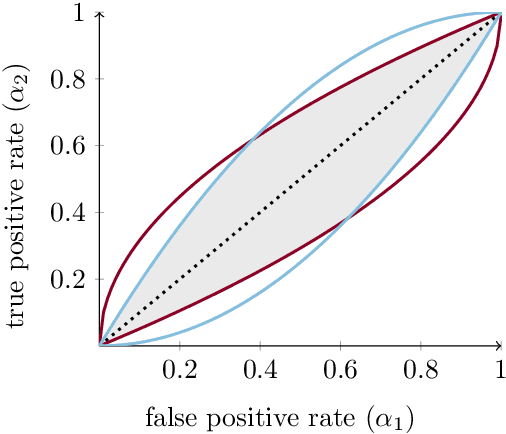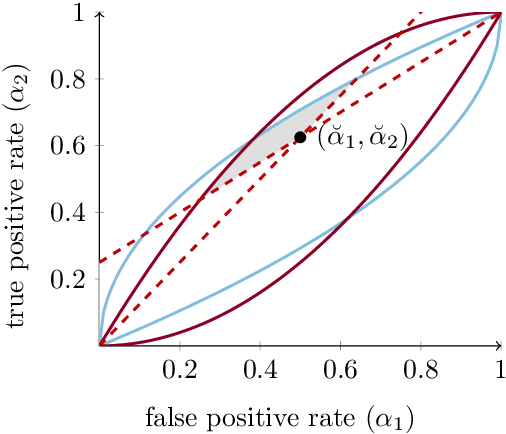A Resolution in Algorithmic Fairness: Calibrated Scores for Fair Classifications
Paper and Code
Feb 18, 2020



Calibration and equal error rates are fundamental conditions for algorithmic fairness that have been shown to conflict with each other, suggesting that they cannot be satisfied simultaneously. This paper shows that the two are in fact compatible and presents a method for reconciling them. In particular, we derive necessary and sufficient conditions for the existence of calibrated scores that yield classifications achieving equal error rates. We then present an algorithm that searches for the most informative score subject to both calibration and minimal error rate disparity. Applied empirically to credit lending, our algorithm provides a solution that is more fair and profitable than a common alternative that omits sensitive features.
 Add to Chrome
Add to Chrome Add to Firefox
Add to Firefox Add to Edge
Add to Edge